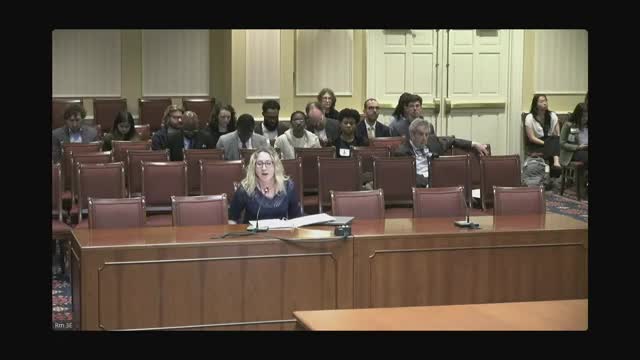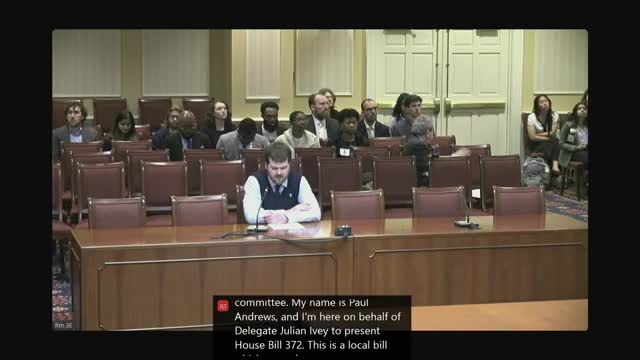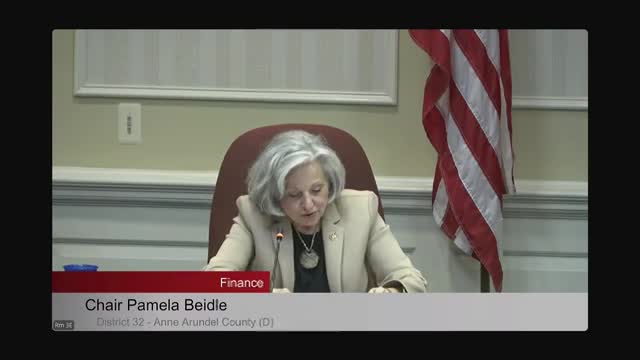Article not found
This article is no longer available. But don't worry—we've gathered other articles that discuss the same topic.

Sponsor says nursing-board cleanup bill simply aligns disciplinary authority for direct-entry midwives

Prince George's local development authority bill gets sponsor-only presentation in Senate Finance hearing

Maryland telehealth bill raises debate over allowing controlled-substance prescriptions by remote clinicians

Insurers urge caution as bill seeks to allow clinical social workers to perform workers' compensation impairment ratings

